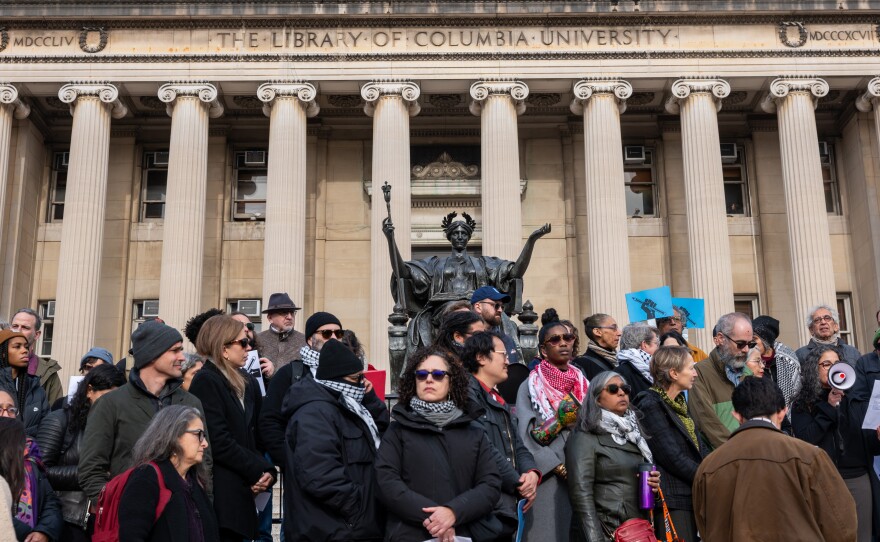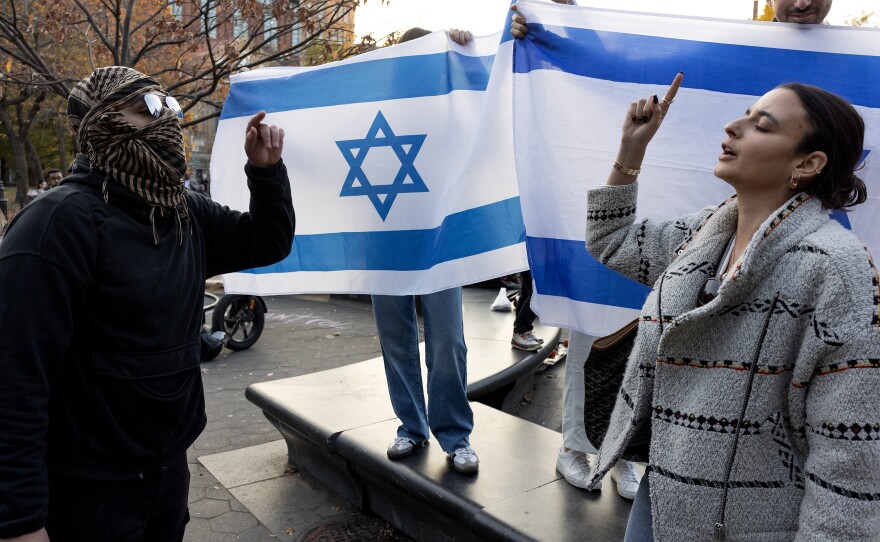The conflict between Israel and Hamas is testing the limits of free speech across college campuses. And it's also affecting those who study the Middle East.
Who are they? They are the scholars who research and teach about the Middle East on college campuses in the U.S.
What did it find? Notably, it found that a clear majority of U.S.-based scholars (69%) didn't just feel the need to self-censor when speaking about the Middle East in general, but specifically in academic and professional settings.
Want to learn more on this conflict? Listen to Consider This on whether Biden's unconditional support of Israel is nearing its limit.

What are people saying? The poll was conducted by Shibley Telhami — a professor of government and politics and the director of the University of Maryland Critical Issues Poll — and Marc Lynch — a professor of political science and international affairs at George Washington University.
Telhami spoke to All Things Considered host Ari Shapiro about the findings and how the academic climate has shifted.
On the motivations for scholars choosing to self-censor:
The key is that most of it was actually fear rather than sensitivity. And so that was fascinating.
There are many who self-censor because they got advice from senior colleagues or from administrators not to say anything that might be interpreted offensively by people, and it wouldn't be good for their careers, particularly assistant professors and graduate students.
So that's not exactly self-censorship because you're sensitive. It's more about worried about the consequences. We had a lot of colleagues who said they were not invited when the university held events on their very issue of expertise because they were worried that their views may not conform to what is needed on campus.
There were some who were told by administrators to watch out what they say publicly. So we were struck by the kind of atmosphere that a lot of our colleagues across U.S. campuses faced on this issue, much more than I would have expected.
On how it is playing out:
I think the universities are facing different pressures. One of the pressures, obviously, we do have real, genuine increases in antisemitism, Islamophobia, anti-Palestinian, anti-Israeli sentiment.
And universities have to manage all that, and make sure that all their people feel safe. A lot of it is genuine — there's nothing un-genuine about it — it has to be taken seriously.
But there are a lot of groups that act disproportionately on some of the issues. And undoubtedly a lot of the scholars who follow the issue feel that the public space does not conform to their own professional interpretations of Israel-Palestine. So they're concerned about criticizing Israel publicly.
On the importance of gauging the experiences of scholars:
When you explain violence, you are not embracing violence. This is something that we as social scientists all, of course, understand. We never have to repeat to ourselves.
But society around us does not get it all the time because they think you're taking side when you're explaining why things happen. But if you don't explain why things happen, you're going to repeat the same mistake over and over and over again.
Learn more:
The interview with Shibley Telhami was conducted by Ari Shapiro, produced by Karen Zamora and edited by Tinbete Ermyas. contributed to this story
Copyright 2023 NPR. To see more, visit https://www.npr.org. 9(MDAzMjM2NDYzMDEyMzc1Njk5NjAxNzY3OQ001))







